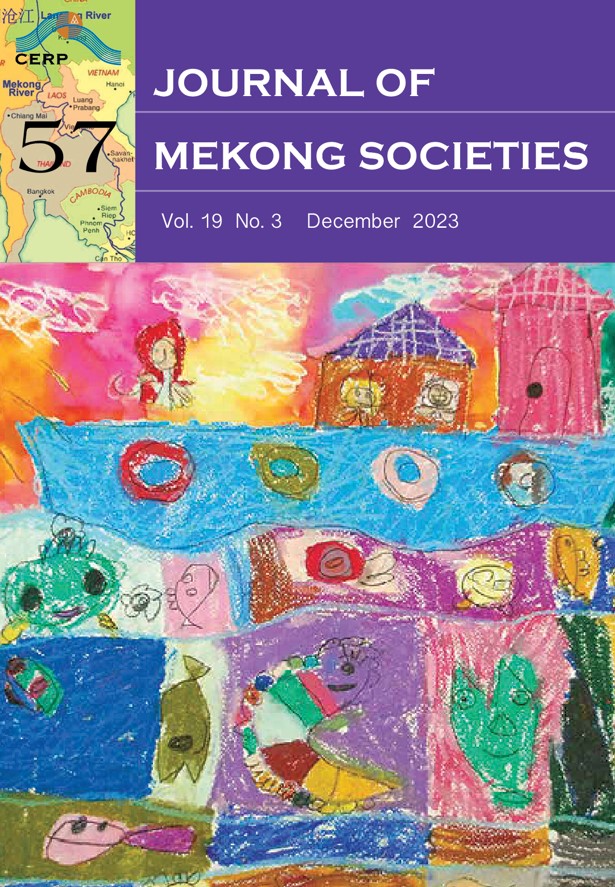The Thai EPOCH Measure of Adolescent Well-being
Main Article Content
Abstract
The study and promotion of well-being, particularly among adolescents, is well-documented within the western context. The EPOCH measure was adapted from the PERMA model as a tool to measure adolescent well-being. Cross-cultural and linguistically equivalent versions of the EPOCH model are necessary in order to help make a precise evaluation of adolescents’ well-being in diverse cultures. By conducting psychometric research on the Thai version of the EPOCH scale, we aimed to explore the five-factor model among Thai adolescents. To create and validate a Thai version of the EPOCH, the English version of the EPOCH was back-translated and distributed based on a snowball sampling method on social media. 368 respondents completed the Thai EPOCH. The responses were analyzed to assess the internal consistency of each of the subscales—engagement, perseverance, optimism, connectedness, and happiness. The results indicate that the Thai EPOCH has the potential to be a useful tool for assessing the well-being of Thai speakers.
Article Details

This work is licensed under a Creative Commons Attribution-NonCommercial-NoDerivatives 4.0 International License.
References
Casas, F. (2011, 2011/10/01). Subjective social indicators and child and adolescent well-being. Child Indicators Research, 4(4), 555-575.
Compton, W. C. and Hoffman, E. (2020). Positive psychology: The science of happiness and flourishing (3rd ed.). SAGE Publications.
Hoyt, L. T., Chase-Lansdale, P. L., McDade, T. W., and Adam, E. K. (2012). Positive youth, healthy adults: Does positive well-being in adolescence predict better perceived health and fewer risky health behaviors in young adulthood? Journal of Adolescent Health, 50(1), 66-73.
Joshanloo, M. (2014, 2014/04/01). Eastern conceptualizations of happiness: Fundamental differences with Western views. Journal of Happiness Studies, 15(2), 475-493.
Kern, M. L., Benson, L., Steinberg, E. A., and Steinberg, L. (2016). The EPOCH measure of adolescent well-being. Psychological Assessment, 28(5), 586-597.
Kern, M. L., Zeng, G., Hou, H., and Peng, K. (2018). The Chinese version of the EPOCH measure of adolescent well-being: Testing cross cultural measurement invariance. Journal of Psychoeducational Assessment, 37(6), 757-769.
R Core Team. (2019). R: A language and environment for statistical computing. Vienna, Austria: R Foundation for Statistical Computing. https://www.R-project.org/
Seligman, M. (2011). Flourish. Free Press.
Seligman, M. and Csikszentmihalyi, M. (2000). Positive psychology. An introduction. The American Psychologist, 55 (1), 5-14.
Setyandari, A. (2019). Adaptation of EPOCH measure of adolescent well-being into Bahasa Indonesia. In 3rd International Conference on Current Issues in Education (ICCIE 2018). Atlantis Press.
Suh, E. M. and Choi, S. (2018). Predictors of subjective well-being across culture. In E. Diener, S. Oishi and L. Tay (Eds.). Handbook of well-being. DEF Publishers.
Taheri, A., Pourshahriari, M., Abdollahi, A., and Hosseinian, S. (2020). Psychometric assessment of the Persian translation of the EPOCH measure among adolescent girls. Current Psychology, 1-10.
Tavakol, M. and Dennick, R. (2011). Making sense of Cronbach’s alpha. International Journal of Medical Education, 2, 53-55.
Wirtz, D., Chiu, C.-y., Diener, E., and Oishi, S. (2009). What constitutes a good life? Cultural differences in the role of positive and negative affect in subjective well-being. Journal of Personality, 77(4), 1167-1196.
Zeng, G. and Kern, M. L. (2019). The Chinese EPOCH measure of adolescent wellbeing: Further testing of the psychometrics of the measure. Frontiers in Psychology, 10(1457).
Websites
World Health Organization. (2020a). Adolescent health and development. Retrieved May 1, 2023 from https://www.who.int/news-room/fact-sheets/detail/adolescents-health-risks-and-solutions
World Health Organization. (2020b). Mental health of adolescents. Retrieved March 3, 2023 from https://www.who.int/news-room/fact-sheets/detail/adolescent-mental-health


